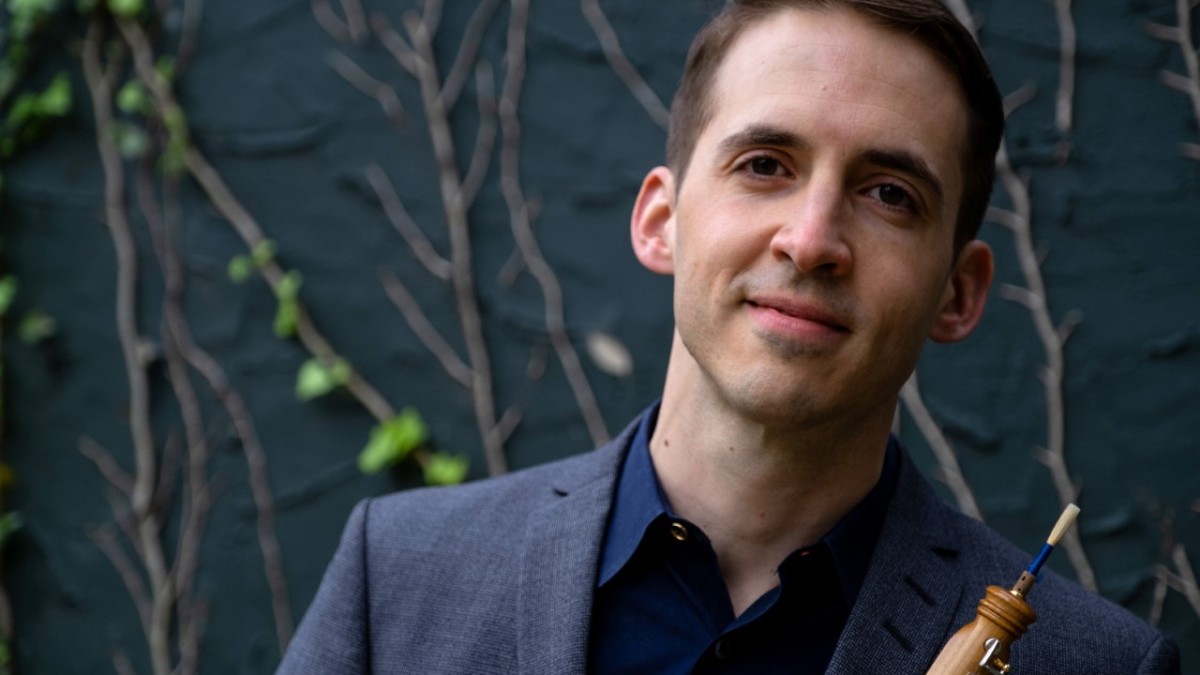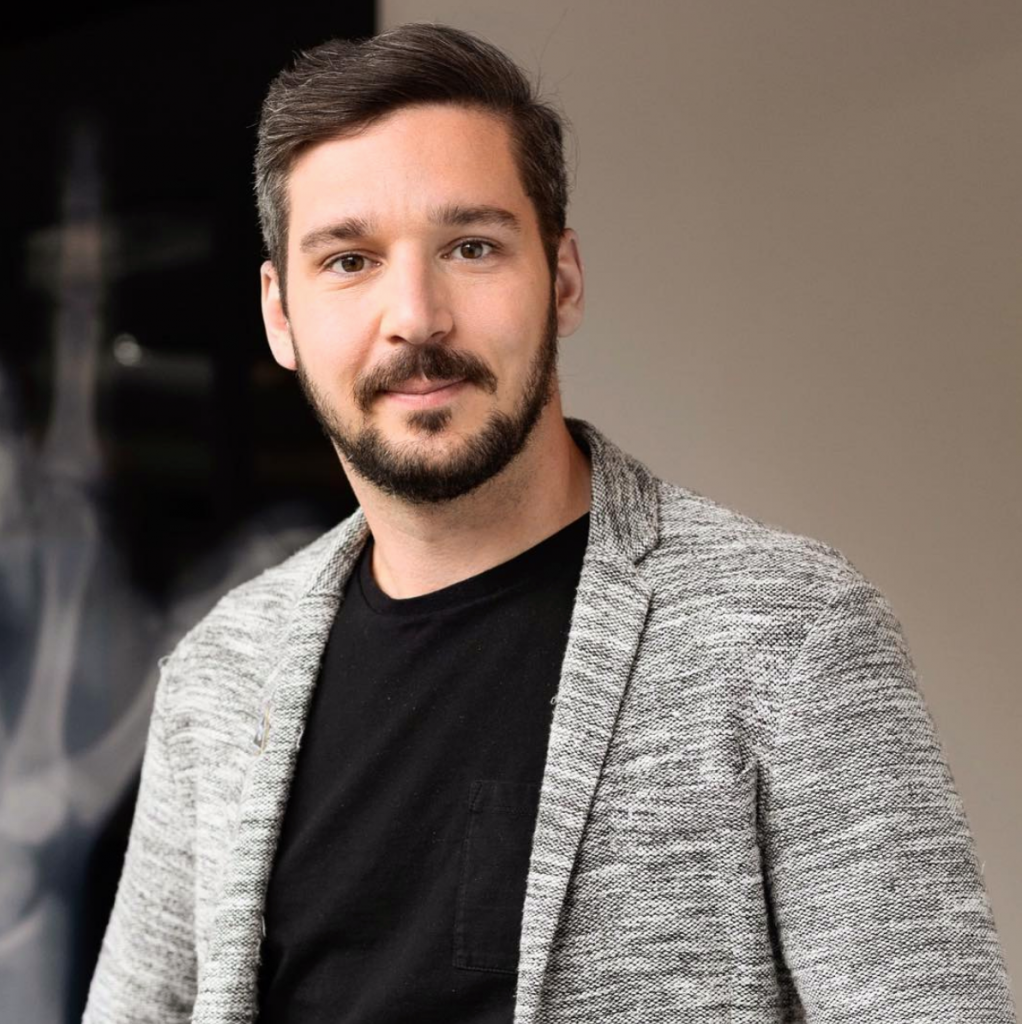When James Austin Smith thinks of the GDR, it is above all a certain smell that arises in his memory. The American oboist never experienced the East German state live. When he came to Leipzig in 2005, for a year as a guest student at the local music college, the city was undergoing major renovations due to the upcoming soccer World Cup. But when he rode the old trams, he smelled this smell and saw, especially in older people, items of clothing that he and his fellow students would never have put on.
It would be fifteen years before Smith began to investigate these phenomena. In the meantime he had become a professor at Stony Brook University and the Manhattan School of Music in New York, played oboe in the Chamber Music Society of Lincoln Center and became a member of the renowned Orpheus Chamber Orchestra in 2019. But when the lockdown came shortly afterwards, like many people, he looked back on his past in the enforced silence – and suddenly wondered what the contemporary music had sounded like that the people on the Leipzig tram might have heard.
Many performing musicians from the former East, singers like Peter Schreier or Theo Adam for example, are fondly remembered in the reunified Germany to this day. But with compositions from the GDR it is a bit like with their films, their literature or their visual arts: they only play a marginal role in public memory. It is no different in the USA either. If German compositions from the past decades are heard there, it is mainly by composers from what was then West Germany. In an interview, Smith sums up the complicated relationship that overtakes the arts in all totalitarian regimes. Where the state rules directly into the music business, where, as in the GDR, it even prescribes an aesthetic program, that of “socialist realism”, composers are anything but always free to express themselves. This creates relationships of dependency that are often difficult to unravel in individual cases and that are therefore better not to deal with at all. While the relationship between musicians and National Socialism has been dealt with in the meantime, the musicological examination of music in the GDR is still in its infancy. Compositions from former East Germany, says Smith, have a bit of the status “like the Trabi”: They are constantly under suspicion of “not being of quite as high quality”.
Smith has always been fascinated by the difficult relationship between music and politics
So, in the fall of 2020, Smith set out to find out if that was true. Since he was able to teach his students online from Leipzig in the afternoons during the lockdown anyway, he traveled back to his old study city on a DAAD scholarship. As a visiting professor at the university’s musicological institute, he spent the mornings in the German National Library and rummaged through what was archived there for his instrument, the oboe. In doing so, he kept coming across the name of his oboist colleague Burkhard Glaetzner. All the well-known composers in the GDR wrote for the now 77-year-old, and he premiered more than a hundred works. In addition, in 1970 Glaetzner initiated the leading ensemble for contemporary music in the GDR with the new music group “Hanns Eisler”, which has also performed time and again in the West.
Smith has always been fascinated by the difficult relationship between music and politics. After all, for a long time he hadn’t been able to decide for himself whether he wanted to become a political scientist or a musician. Which is why he studied both at the same time at Northwestern University in Chicago, one of the few universities where both courses could be combined. The final decision in favor of music was not made until the year abroad in Leipzig – also because he felt different support for it in Leipzig than in the USA. In America, says Smith, music students are always asked what “plan B” they have. In eastern Germany, on the other hand, he heard for the first time from people who did not spend the whole day playing music: “It’s wonderful that you study music.” Smith sees this as a positive legacy of the GDR, which once had the world’s largest density of state-funded theaters and orchestras.
When Smith was long back in New York, he suddenly received a package from Siegfried Thiele. In it: a new composition for oboe
The repertoire that he found in the archives, partly handwritten, for his instrument was correspondingly rich. He now wants to bring a lot of this into his own university lessons and record it himself in videos on YouTube in order to arouse new interest. In addition, he plans video conversations with protagonists of the GDR music scene for “an oral history of GDR music”.
As with Siegfried Thiele, whom he visited during his stay in Leipzig. The 87-year-old from the Frankfurter Allgemeine Zeitung Once called “one of the most respected composers in the GDR”, he achieved his greatest international fame when he composed “Gesänge an die Sonne” in 1981 for the opening of the New Gewandhaus. Because the central committee of the SED did not like the texts used in it and Thiele was latently suspicious as a member of the Christian community, the conductor Kurt Masur had to fight the premiere first. For this reason, Thiele was appointed rector of the Leipzig University of Music soon after reunification. He was noticeably pleased that the American performed one of his pieces privately, says Smith.
When he was long back in New York, he suddenly received a package from Siegfried Thiele. In it: a new composition for him, a “ballad for oboe”. On June 9 of this year, Smith will premiere it at the Spoleto Festival in Charleston, South Carolina, after the concert scene in many states of the USA has already started rolling again. The European premiere is to follow at the Orlando Festival in Holland in August. And there, if the travel conditions allow, the oboist from the New World will perhaps meet the composer from the lost state again.
– .


